Share

Auditory Anthology
A weekly podcast bringing to life the most captivating science fiction stories.
Latest episode
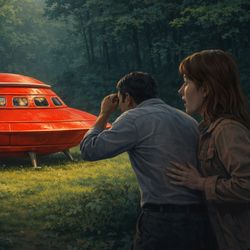
The Short Snorter by Charles Einstein
15:27|When Fred and Alice stumble upon a bright red flying saucer in the woods, they discover that the greatest obstacle to proving an alien invasion isn’t the government—it’s the pilot’s remarkably convincing ability to exchange “Venusian” currency for twenty-dollar bills.
More episodes
View all episodes

The Night Signal - Exactly Where You Need To Be
16:44|When a skeptic’s GPS begins forcing her onto eerie, out-of-time detours, she discovers that her navigator isn't just avoiding traffic—it’s navigating the "outcomes" of her life.The Night Signal by Auditory AnthologySomewhere on the AM dial, long after most people have gone to sleep, late-night radio host Marianne Caldwell opens the phone lines. Callers bring stories. Encounters. Moments that don’t quite fit into daylight explanations.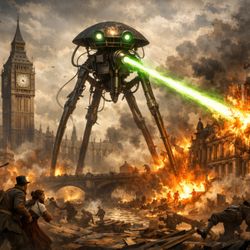
War of the Worlds by H.G. Wells: Chapter Five
09:05|For our Serial Sunday series, we are presenting The War of the Worlds by H. G. Wells. When mysterious cylinders fall from the sky, Victorian England is thrust into a terrifying struggle for survival as Martian machines lay waste to the countryside. Told in serialized chapters, this landmark science-fiction classic unfolds as a gripping tale of invasion, panic, and humanity pushed to the brink.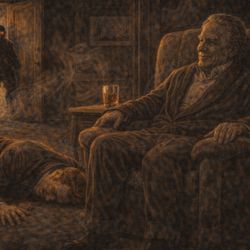
No Shield from the Dead by Gordon R. Dickson
18:14|In a future where high-ranking officials are protected by impenetrable personal shields, ruthless Comptroller Terri Mac discovers that the one thing his technology can’t block is a two-some-hour gap in his record—and the vengeful memory of a woman he destroyed to reach the top.
The Night Signal - Sasquatch vs. The HOA
24:44|In a pristine subdivision where every fence height and trash can is strictly regulated, the residents must decide whether to enforce the rules or break them to help a very lost Sasquatch find his way home.This week on The Night Signal, our fictional late-night paranormal radio show returns with another caller who insists they’re not panicking—they’re just… observing.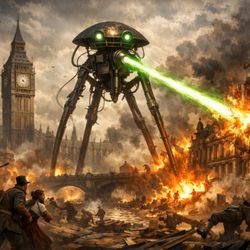
War of the Worlds by H.G. Wells: Chapter Four
07:02|For our Serial Sunday series, we are presenting The War of the Worlds by H. G. Wells. When mysterious cylinders fall from the sky, Victorian England is thrust into a terrifying struggle for survival as Martian machines lay waste to the countryside. Told in serialized chapters, this landmark science-fiction classic unfolds as a gripping tale of invasion, panic, and humanity pushed to the brink.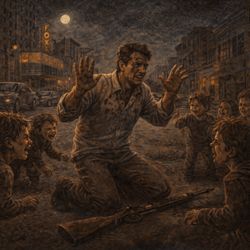
Small World by William F. Nolan
25:01|In the silent ruins of Los Angeles, the last man on Earth risks a deadly commute for a piece of his past, only to find that the children who inherited the world have grown into its most savage predators.